2023
30
January
What is the best way to exchange money or pay for things in a different currency?
30
January
When you travel, you have many different options when it comes to exchanging money or paying for things in a different currency.
While there are many options, I can guarantee you one thing, any time you exchange money or pay for things in a different currency, *someone* is taking a minimum of 3% of every transaction from you as a foreign exchange fee.
They are taking this fee in at least one of two ways:
* an obvious fee that they tell you about upfront
and / or
* a hidden fee, by using an inflated exchange rate that is worse than today's 'real' exchange rate
Inflated exchange rates - the hidden fee
A lot of people aren't aware of the hidden fee. For example, if today's 'real' exchange rate between Canadian and U.S. dollars is 1.30, they are charging you an inflated rate of 1.34 - and pocketing the 3% difference as a fee for themselves.
Unless you actually look at your receipt or credit card statement, and compare the exchange rate they used, against the 'real' exchange rate from a currency exchange site (like XE.com) - you will have no idea about this hidden fee.
And by *they* I mean every bank, currency exchange center, ATM machine, and credit card in the world. They all want their 3% fee from you.
Ways you can exchange money - from worst to best
| Method | Obvious Fee | Inflated Exchange Rate |
| Airport exchange kiosk |   |
  |
| Your bank at home |  |
  |
| Good independent currency exchange place at home |  |
 |
| ATM in a different country |  |
 |
| Prepaid cards (most of them) |  |
 |
| Credit cards (most of them) |  |
|
| 'Zero foreign exchange fee' credit cards (rare) |
NONE | NOPE |
| 'Zero foreign exchange fee' prepaid cards (rare) |
NONE | NOPE |
Yes, there are ways to avoid both the obvious fees *and* the hidden fees (inflated exchange rates)
When paying for something in a different currency, the two best types of products for avoiding fees are:
1. 'Zero foreign exchange fee' credit cards
2. 'Zero foreign exchange fee' prepaid cards
They're both useful in different ways, depending on your goal.
Credit cards are useful for purchasing things from stores or restaurants in other countries while avoiding foreign exchange fees and earning cash back or rewards at the same time.
Prepaid cards are useful for purchasing things from stores or restaurants in other countries and avoiding foreign exchange fees while withdrawing cash from the ATM.
• If you only care to see a list of my current recommendations for both types of products, click here to jump to the bottom of this article.
• If you would like a little more detail as to why they are my current recommendations for avoiding currency exchange fees, read on.
Free Credit Cards With Zero Foreign Transaction Fees
When your goals are:
• To purchase things in a foreign currency from stores, restaurants, and websites in other countries that accept credit cards and pay absolutely zero foreign transaction fees.
• To potentially earn cash back on top of the 3% you're already saving in foreign transaction fees.
Most of the free 'zero foreign transaction fee' credit cards have become worse over the past year or two.
The best free option right now is the Brim Financial Mastercard....
1. Brim Mastercard
Pros:
• Zero foreign transaction fees.
• Can earn points (1 point for every $1 spent).
• Can redeem points at any time and in any amount.
• Free Boingo wi-fi access.
Cons:
• Being a Mastercard, it won't work at U.S. Costco's.
• Seems to easily trigger fraud alerts while using it abroad. It's a good idea to have a backup card.
The other two free options are tied for second place...
2. Home Trust Preferred Visa
Pros:
• Zero foreign transaction fees.
• Being a Visa, it's useful as a backup to the Brim Mastercard.
Cons:
• No cash back on foreign exchange purchases (1% back on Canadian purchases).
• Your accumulated cash back credits only once a year.
• Its days might be numbered due to Smith Financial Corporation acquiring Home Capital Group.
2. Rogers World Elite Mastercard
Pros:
• 3% cash back rewards on purchases made in U.S. dollars, which compensates for the foreign exchange fee.
• 1.5% cash back rewards on purchases made in Canadian dollars.
• Actually has some decent insurance included, unlike the Brim or Home Trust cards.
Cons:
• Only useful for purchases made in U.S. Dollars.
• Has a minimum income requirement of $80,000 annual (personal) $150,000 (household).
The Rogers website *says* to maintain eligibility for this card, you must have an annual spend of $15,000 each year. As of yet, there have been no reports of this being enforced.
If the majority of your foreign currency purchases are in U.S. dollars the Rogers World Elite is a good free card to consider. For purchases in other currencies it is not useful.
Credit Cards With Zero Foreign Transaction Fees
(But Have An Annual Fee)
For credit cards with an annual fee it comes down to whether or not you actually value what they include for insurance, perks, etc, that free credit cards rarely include. Your personal spending habits are also an important factor (which determines your rewards).
There's no right answer for everyone. The first two cards listed here are the ones most Canadians debate over unless you're able to spend a decent amount using American Express.
1. HSBC World Elite Mastercard
• $149 annual fee (first year free)
• Zero foreign transaction fees
• Good choice for those who spend a lot on travel (3% back in travel rewards)
Insurance:
travel medical, bag delay, bag loss, trip cancellation, trip delay, rental car
Perks:
Boingo wi-fi, $100 travel credit, DragonPass lounge membership (but not lounge passes)
Cons:
• Being a Mastercard, it won't work at U.S. Costcos
• Its days might be numbered due to potential acquisition from RBC (but very early to speculate, the acquisition hasn't even been approved yet)
2. Scotiabank Passport Visa Infinite
• $150 annual fee (first year free)
• No foreign transaction fees
• Good choice for those who value lounge passes
Insurance:
travel medical, bag delay, bag loss, bag theft, hotel burglarly, trip cancellation, trip delay, rental car
Perks:
Visa lounge membership, 6 Plaza Premium lounge passes
3. Scotiabank Gold American Express
• $120 annual fee (first year free)
• No foreign transaction fees
Insurance:
travel medical, bag delay, bag loss, bag theft, hotel burglarly, trip cancellation, trip delay, rental car
Cons:
• American Express is not widely accepted outside North America
jump to: Summary Credit Cards Prepaid Cards Top
Prepaid Cards With Zero Foreign Transaction Fees
When your goals are:
• To purchase things in a foreign currency from stores, restaurants, and websites in other countries that accept credit cards and pay absolutely zero foreign transaction fees.
• To potentially earn cash back on top of the 3% you're already saving in foreign transaction fees.
• To withdraw cash from an ATM machine in another country and pay the lowest transaction fees possible.
You typically load prepaid cards using funds from your bank account.
There are a handful of prepaid cards that are useful for purchasing things or withdrawing cash from an ATM in another country and avoiding fees while doing so.
With virtually all other prepaid cards, a 3% currency conversion fee is taken from you at some point. It could be when you use the card, or when you load it with funds. It's usually a hidden fee (built into the exchange rate) so most people are unaware.
1. Wise Prepaid Visa
Wise has been around since 2011 (they used to be known as TransferWise). The important thing to know about Wise is that from the very beginning their goal was to offer lower transaction fees than the traditional banks with everything they do.
Whether it's exchanging currency, loading funds in a different currency, or buying things in a different currency, their goal is to offer very low fees and be transparent about what those fees are.
For many travellers the Wise card is a great choice for buying things while abroad, or withdrawing reasonable amounts from ATMs in other countries.
From an ATM...
...if you withdraw $350 or less in a month there are zero foreign transaction fees.
... if you withdraw more than $350 in a month, you pay a 1.75% foreign transaction fee on the amount over $300. (Which is still pretty decent compared to the 3-3.5% fee that virtually every bank or prepaid card will charge you).
...if you make more than 2 withdrawals in a month, you pay $1.50 for each additional withdrawal.
Pros:
* The only prepaid card on the Canadian market that reliably supports 3-D Secure (3DS), which is an extra layer of security for transactions.
Cons:
* If you're going to be withdrawing higher amounts from ATMs (or more frequently) you may want to look into the Wealthsimple Prepaid Mastercard below.
2. Wealthsimple Prepaid Mastercard
Pros:
* 1% interest on your balance
* 1% cashback, crypto, or stock (your choice)
* 0% foreign transaction fees
* $0 ATM withdrawals both within and outside of Canada
* Higher ATM withdrawal limits ($500 per transaction, $1k daily, 3 transactions per day)
Cons:
* Being a Mastercard, it won't work at U.S. Costcos
* The reason Wealthsimple can offer this free card with such attractive features is that they hope you'll be convinced to also use their other investment services. It's essentially a loss leader product for them. As a result the signup process can feel a little more invasive than other prepaid cards, such as asking for your SIN.
jump to: Summary Credit Cards Prepaid Cards Top
3. EQ Bank Prepaid Mastercard
Pros:
* 2.5% interest on your balance
* 0.5% cash back
* 0% foreign transaction fees
Cons:
* Being a Mastercard, it won't work at U.S. Costcos
The EQ Bank Prepaid Mastercard is the new kid on the block. It's meant to compete with the WealthSimple Prepaid Mastercard.
They both help you avoid the typical 2.5% foreign transaction fee when buying something or withdrawing from an ATM in another country.
The main difference is that EQ Bank gives you a higher interest rate on your balance (2.5% versus 1% with WealthSimple), but slightly less cash back (0.5% versus 1% with WealthSimple).
jump to: Summary Credit Cards Prepaid Cards Top
Summary Of The Best Zero Foreign Transaction Fee Products To Use - Depending On Your Goal
| Goal | Best Product To Use | Best Choices | ||
| Purchase things from stores or restaurants where credit cards are accepted *and* earn cash back or rewards. | Zero Foreign Transaction Fee Credit Card | Free Brim Mastercard Home Trust Preferred Visa Rogers World Elite Mastercard Annual Fee HSBC World Elite Mastercard Scotiabank Passport Visa Infinite Scotiabank Gold American Express | ||
| Goal | Best Product To Use | Best Choices | ||
| Purchase things from stores or restaurants where credit cards are accepted. | Zero Foreign Transaction Fee Prepaid Card | Wise Prepaid Visa Wealthsimple Prepaid Mastercard EQ Bank Prepaid Mastercard | ||
| Goal | Best Product To Use | Best Choices | ||
| Withdraw cash from an ATM machine in another country and pay the lowest transaction fees possible. | Zero Foreign Transaction Fee Prepaid Card | Wise Prepaid Visa Wealthsimple Prepaid Mastercard EQ Bank Prepaid Mastercard | ||
jump to: Summary Credit Cards Prepaid Cards Top
Other tips for exchanging money or paying for things while traveling
Are there any major Canadian banks that allow you to avoid paying high fees when making ATM withdrawals in other countries?
All major banks will charge the 3-3.5% hidden fee (inflated exchange rate) but Tangerine / Scotiabank is the one bank that won't charge the additional obvious fee, if you withdraw from an ATM in the Global Alliance.
ATMs in the Global Alliance include: Bank of America (in the U.S.), Scotiabank (in Mexico, Caribbean, Central America or South America), and Deutsche Bank (in Europe).
You can find a complete list of ATMs in the Global Alliance here.
What about withdrawing cash using my credit card?
This is generally a bad idea. Most credit cards consider this a cash advance, and start charging you interest immediately.
Yes, there are sometimes ways around the interest charge, by overpaying your credit card first, but this can still be a bad idea for other reasons, and you'll still be charged a cash advance fee.
TIP: If the machine gives you a choice, choose to be charged in the currency of the country you're in.
When you're in another country, and the debit or credit machine asks if you would like to be charged in your home currency (Canadian dollars) - do *not* select this option.
It may seem like a good idea, but what's really happening when you select that option is that the machine's provider is determining the exchange rate when calculating the amount you will be charged in $CAD.
I guarantee that this will be an even more inflated exchange rate than the one that Visa or Mastercard uses.
What you want to do is select the option to be charged in the currency of the country you're in, and let Visa or Mastercard use their typical 2.5% inflated exchange rate.
Beware: I have heard that with some machines, if you use the tap method to pay, you may not even be asked, and it will automatically charge you in $CAD, with the terrible exchange rate.
Is there a way to avoid foreign exchange fees when sending an international money transfer?
You may want to look into Wise.
They use the real exchange rate, without the hidden 3% markup. There is still an obvious fee (small percentage and fixed fee) but they are transparent about it.
What currency should I use in Mexico?
Pesos are the best currency to use in Mexico. Using $USD means both you and the person you're paying are each losing 3%.
Convert some Canadian dollars to Pesos before you go, or withdraw them from the ATM when you get there.
When using the ATMs in Mexico, choose the legitimate bank ATMs. Not the street ATMs.
Jump to: Summary of the best 'zero foreign exchange fee' products to use
Jump to: The best 'zero foreign exchange fee' credit cards
Jump to: The best 'zero foreign exchange fee' prepaid cards
Jump to: Top of this article
|
|
|
|
People That Liked This Page Also Liked:
|
|
You may also want to check out pages that were tagged with: |
Be The First To Know About The Next Amazing Deal!
Head to the YUL Deals Alerts Page where you can choose to be notified by e-mail, Facebook, Twitter, or RSS Feed the moment an amazing travel deal from Montreal is found.Setting up alerts allows you to be one of the first to see a new deal, before it sells out.
And don't worry, alerts are only sent when it's truly an amazing deal.
Like Our Site? Follow Us!
|
|
Comments from Facebookers
Comments from Everyone Else
5 Responses to "What is the best way to exchange money or pay for things in a different currency?"
Comments are automatically closed 30 days after the post is made.



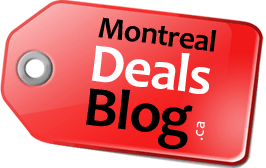
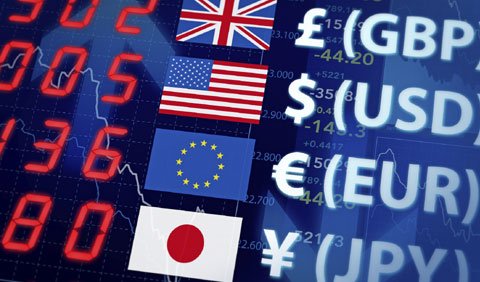
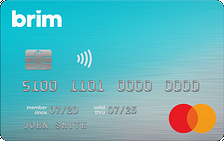

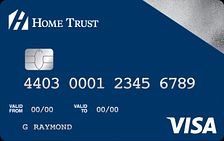
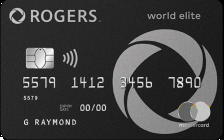
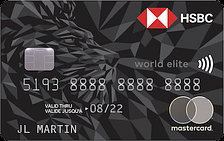

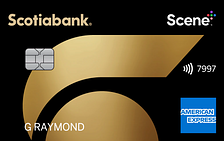

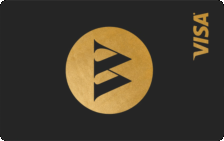
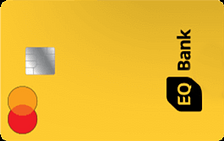




Just received my Rogers World Elite Mastecard. Really disappointed to see clearly stated that a 2,5% fee is charged to every foreign transaction.
The Rogers cards charge the 2.5% foreign exchange fee, but this fee is negated by the 4% back that you receive when making a purchase in a foreign currency. Another way to think of it is a 0% foreign exchange fee and an additional 1.5% back.
Ah, I get it now! Merci pour vos précisions!
I recently found out about Transferwise and opened a borderless account. Love the concept haven't used it yet to know how well it works despite all the good reviews Ive read.
If you are visiting a country/countries that readily accept American dollars such as curaçao or Bonaire get an American dollar credit card, such as the scotiabank US dollar card. I got a good exchange rate for Canadian to American dollars and made a deposit to the credit card. I then used that card extensively, and where cash was needed I used a bank ATM to withdraw cash - there was no cash advance fee since there was a surplus in the account. You generally have up to 50 days to pay the bill if needed but what usually happens is your purchases come off the surplus immediately as well as the no charge cash advances. Just make sure you put enough into the account to cover your purchases. Having a reasonable budget helps.